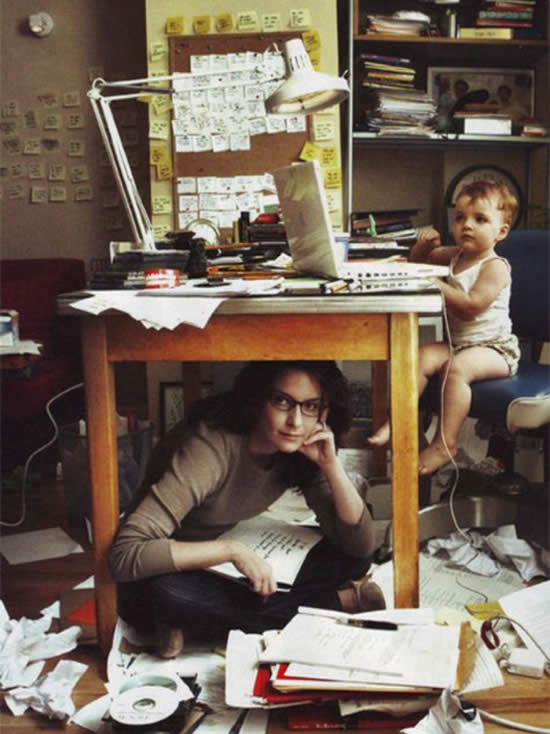Clearview® Performance Systems brings you ...  ... a Culture of Results & Engagement™
... a Culture of Results & Engagement™
Clearview® Performance Systems brings you ...  ... a Culture of Results & Engagement™
... a Culture of Results & Engagement™
Here's the next in our series of weekly managerial TIPS (Techniques, Insights, and Practical Solutions)
to help you better engage your team in the activities that lead to higher performance.
CORE Bites Issue #50

Could there be a modicum of truth in Albert Einstein's famous quote ...
"If a cluttered desk is a sign of a cluttered mind, of what, then, is an empty desk a sign?"
Apparently, a few other geniuses think the same way because Mark Twain, Tina Fey, Thomas Edison, and Steve Jobs all have or had famously messy desks. It appears that geniuses have something better to do than fiddling around with systems that require 'a place for everything and everything in its place!'




Now before you jump to the conclusion that I am an advocate for a cluttered desk, that's not where I'm heading with this issue of CORE Bites. Read on ...
I had a senior leader contact me recently to ask for advice on how to help someone on his team who is disorganized. When I asked him to define what he meant by "disorganized," he replied with the typical things one would expect—the individual has a messy desk piled with papers and reports; no systems for filing or organizing; and he always looks flustered as he works.
We chatted for a few minutes about the various styles and approaches that exist in how people organize themselves and then I asked him the question that quickly gets to the crux of the quandary—especially when managing a workgroup with diverse skills and job functions:
"Does this person deliver consistent results?"
If you currently (or in the future) supervise someone who appears "disorganized" but you're still able to respond to the aforementioned question with "Yes, this person delivers consistent results." then HVA #1 is for you. If, however, your response is "No, this person's results are inconsistent with frequent deadlines not met." then HVA #2 is your best option.
This week (starting today), monitor the planning process used by each of your employees and compare that process with the quality of their output. If there are any inconsistencies, use the relevant HVA below:
HVA #1: If Your "Disorganized" Employee Delivers Consistent Results:
HVA #2: If Your "Disorganized" Employee Delivers Inconsistent Results:
I'd love to hear how this HVA works for you!
Neil Dempster, PhD, MBA
RESULTant™ and Behavioral Engineer
"Getting organized is not about moving from procrastination to perfection. It is about being the most productive person you can be."
— Neil Dempster —
